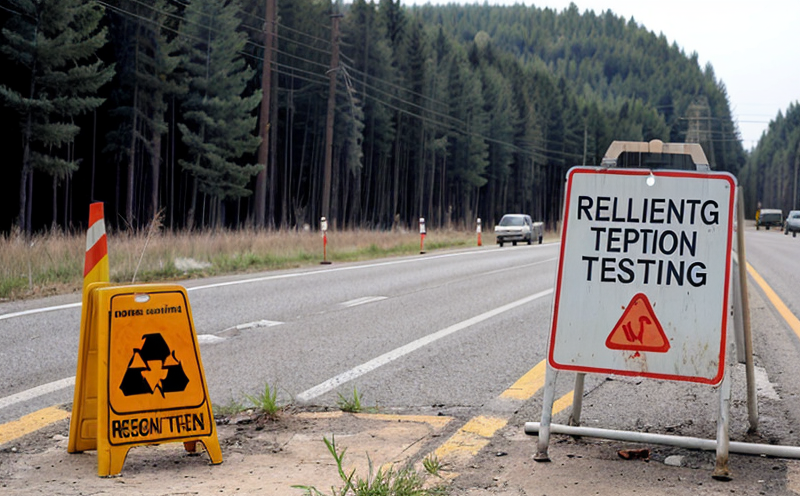Environmental Radiation Testing
In today's increasingly complex world, environmental radiation testing plays a crucial role in ensuring public safety and compliance with international standards. As quality managers, compliance officers, R&D engineers, or procurement professionals, understanding the intricacies of this service is essential for making informed decisions about product development, regulatory affairs, and supply chain management.
Environmental radiation testing encompasses a broad spectrum of activities aimed at identifying, measuring, and characterizing various forms of ionizing radiation present in the environment. This can include gamma rays, X-rays, alpha particles, beta particles, and neutrons. The primary goal is to assess potential exposure risks and ensure that environmental conditions meet regulatory requirements.
The testing process typically involves the use of specialized equipment such as scintillation detectors, proportional counters, and semiconductor detectors. These instruments are calibrated according to international standards to provide accurate measurements of radiation levels. Specimen preparation for this type of testing often includes collecting soil samples, air filters, or water samples depending on the specific environmental concern.
Once collected, these specimens undergo rigorous analysis using gamma spectroscopy, neutron activation analysis (NAA), and other analytical techniques. The results are then compared against relevant national and international standards to determine whether they fall within acceptable limits for human health and safety.
It's important to note that environmental radiation testing is not just about detecting the presence of radiation; it also involves understanding its sources, pathways, and potential impacts on ecosystems and communities. This holistic approach helps stakeholders make informed decisions regarding mitigation strategies and risk management plans.
By adhering strictly to established protocols and methodologies outlined in international standards such as ISO 17835:2019 for the determination of gamma radiation levels in the environment, laboratories like Eurolab can provide reliable and accurate test results. These standards ensure consistency across different testing environments and contribute to global harmonization efforts.
Furthermore, environmental radiation testing contributes significantly to various sectors including healthcare, agriculture, energy production, construction, and waste management. For instance, in healthcare facilities, regular monitoring of radiation levels helps prevent accidental overexposure incidents. In agricultural applications, understanding soil contamination patterns allows for more sustainable farming practices.
In conclusion, environmental radiation testing is a critical service that ensures public safety while supporting regulatory compliance across multiple industries. By leveraging advanced technology and adhering to stringent quality control measures, Eurolab offers dependable solutions tailored specifically to meet the needs of our diverse client base.
Applied Standards
| Standard Number | Description |
|---|---|
| ISO 17835:2019 | Determination of gamma radiation levels in the environment |
| ASTM E1684-18 | Standard test method for determination of total alpha, beta and gamma radioactivity in drinking water by liquid scintillation counting |
| EN 13725:2003 | Determination of radon concentrations in indoor air - Sampling techniques and measurement methods |
| IEC 62249-1 | Radioactive contamination of electronic parts - Part 1: General requirements and test procedures |
| AAPL 503 | Standard method for the measurement of gamma radiation in the environment |
| UNSCEAR (United Nations Scientific Committee on the Effects of Atomic Radiation) | Assessment and reporting of global environmental data related to ionizing radiation |
| NCRP Report No. 160 | Guidance for setting public exposure limits from man-made sources |
| ICRP Publication 118 | Dose limitation of the individual in protection against ionizing radiation and basic safety standards for radiation facilities |
Eurolab Advantages
At Eurolab, we pride ourselves on delivering exceptional environmental radiation testing services that go beyond mere compliance. Our state-of-the-art laboratories are equipped with cutting-edge technology and highly skilled professionals who possess deep knowledge in this specialized field.
We understand the importance of accuracy and reliability when it comes to measuring minute amounts of radiation. That's why we invest heavily in maintaining our instruments according to strict calibration schedules. This ensures consistent results regardless of location or time frame. Additionally, our team members are continuously trained on new developments within the industry so that they stay updated with best practices.
Another key advantage offered by Eurolab is our comprehensive approach towards problem-solving. Instead of simply providing test results, we take it one step further by offering expert interpretation and recommendations based on those findings. Whether you need assistance developing a mitigation strategy or just want assurance about current levels of radiation in your area, our team can help guide you through the process.
Lastly, Eurolab maintains strict quality assurance protocols throughout all stages of testing from sample collection to final report generation. This commitment ensures that every service delivered meets the highest standards expected by our clients.
Why Choose This Test
Choosing environmental radiation testing is an informed decision aimed at safeguarding public health and ensuring compliance with international regulations. Here are some compelling reasons why you should opt for this service:
- Promotes Public Safety: Regular monitoring of radiation levels helps protect communities from potential health risks associated with high exposure.
- Ensures Regulatory Compliance: Adherence to stringent standards ensures that operations remain within legal boundaries, avoiding costly fines and penalties.
- Sustains Sustainable Practices: Understanding the environmental impact of various activities allows for more responsible decision-making leading towards sustainable practices.
- Enhances Reputation: Demonstrating a commitment to safety and compliance enhances your company's reputation among stakeholders, customers, and investors alike.
- Fosters Innovation: Insights gained from testing can inspire new ideas and improvements in processes, ultimately driving innovation within the organization.
- Saves Time & Cost: Early detection of issues through regular testing saves significant time and resources compared to addressing larger problems later on.
In summary, environmental radiation testing is more than just a regulatory requirement; it's a proactive measure towards building trust, fostering innovation, and ensuring long-term success for any organization operating within this sector.





